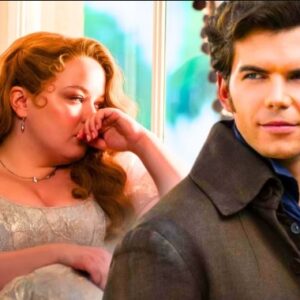Vikings has said goodbye to a lot of characters, and one of the most heartbreaking deaths was that of Athelstan. But why was he killed?
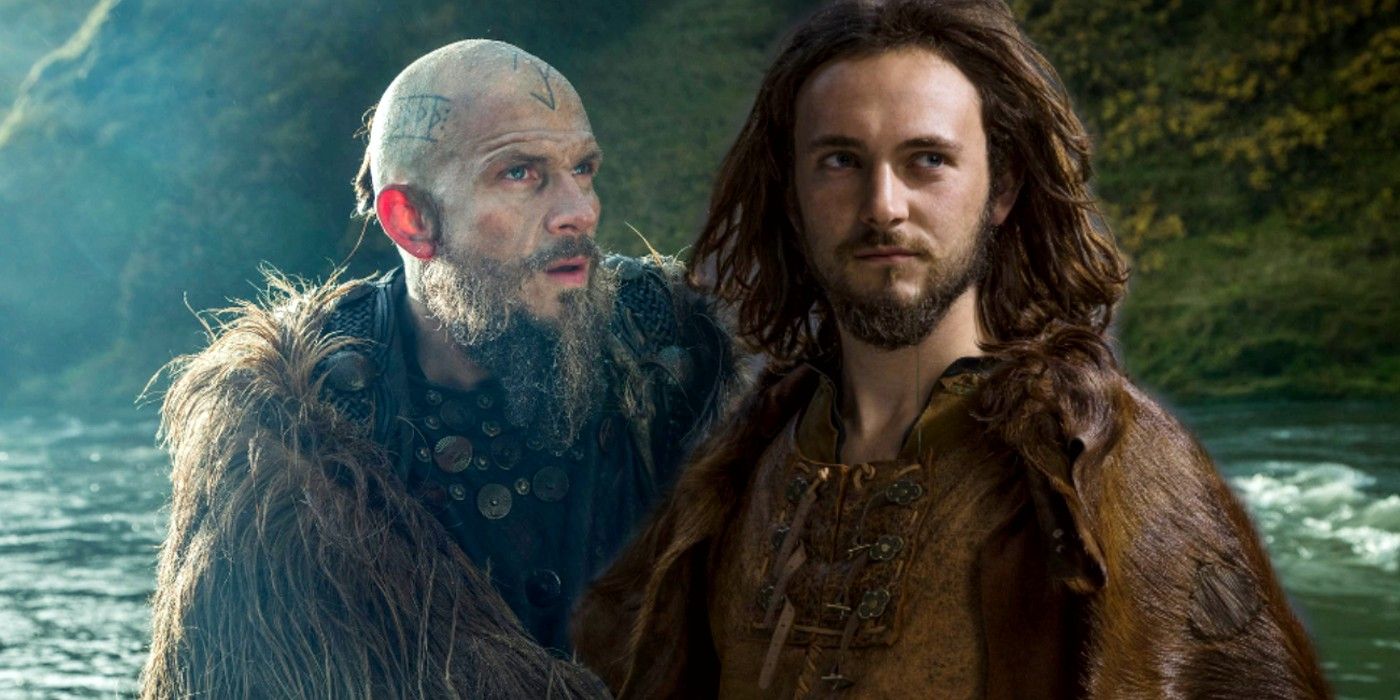
Vikings has seen a lot of characters come and go, most of them meeting their fates in violent ways, and one of the most heartbreaking deaths was that of Athelstan (George Blagden) – but why was he killed off? Created by Michael Hirst, Vikings initially followed legendary Norse figure Ragnar Lothbrok (Travis Fimmel) and his Viking brothers on their many journeys, from the beginning of the Viking era onward. The series shifted its focus to Ragnar’s sons in later seasons, making them the protagonists of the series.
Athelstan’s Death In The Show Is A Crucial Moment For Floki And Ragnar
Ragnar’s Two Friends Represent His Two Paths To God
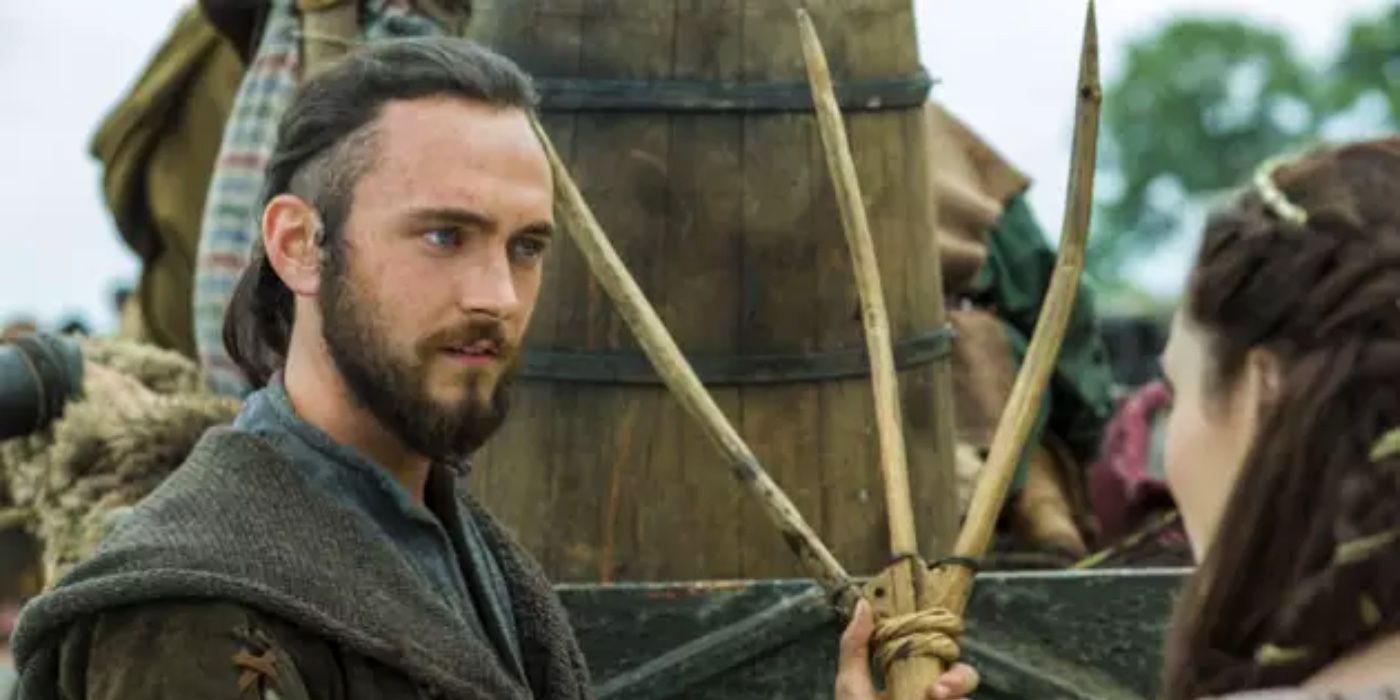
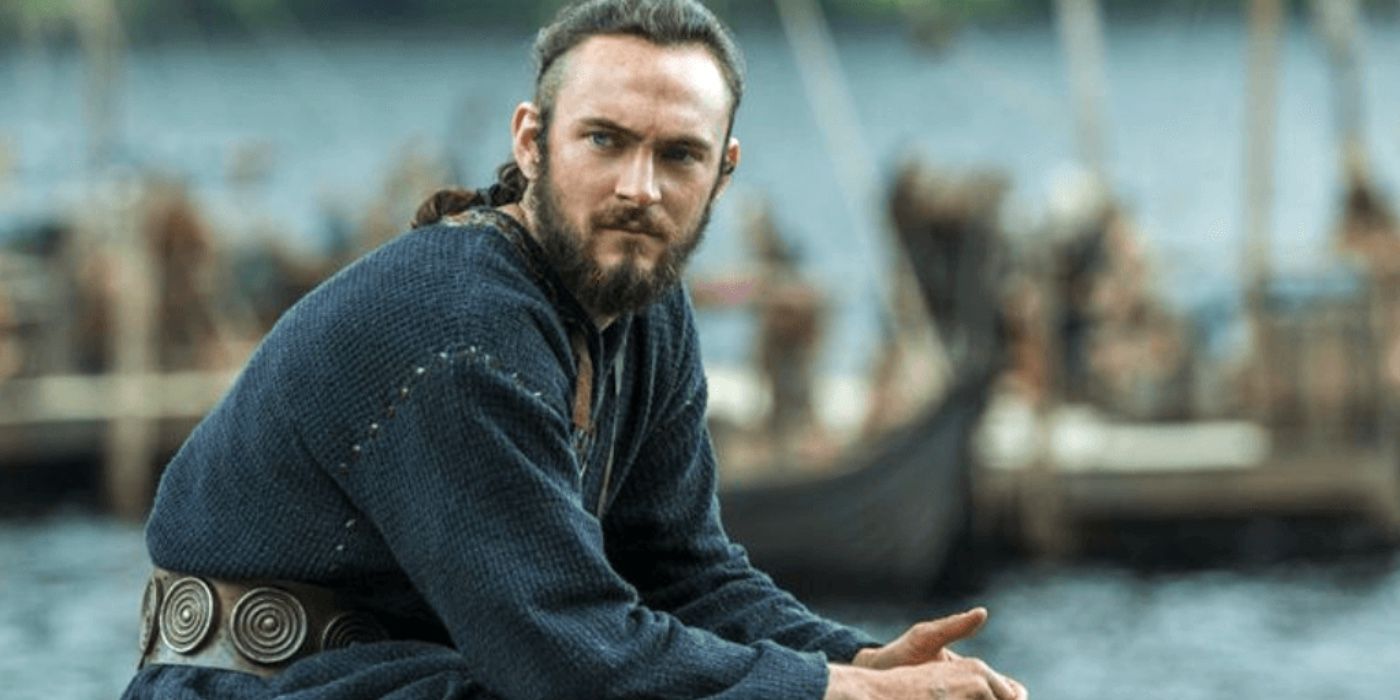
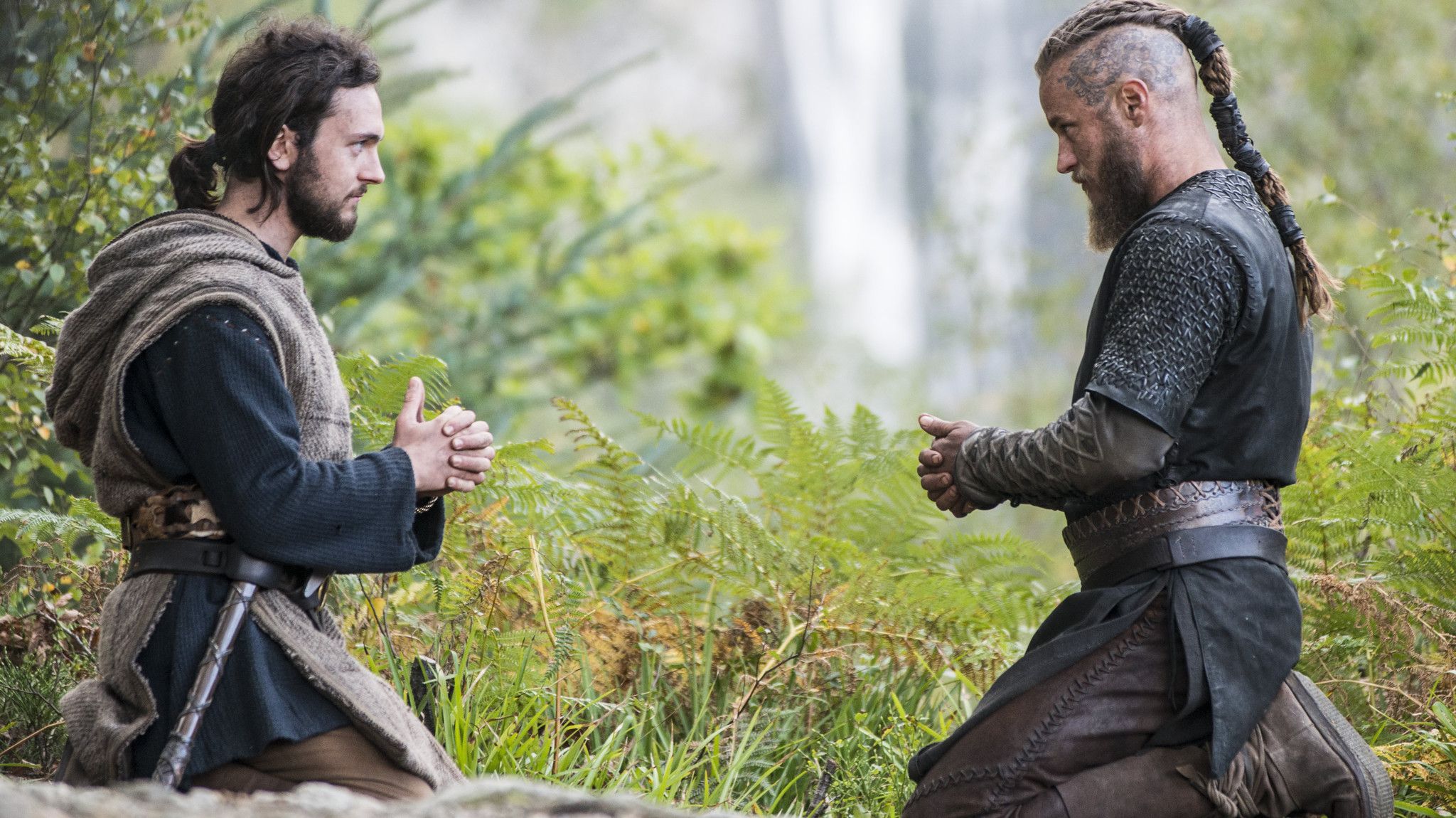
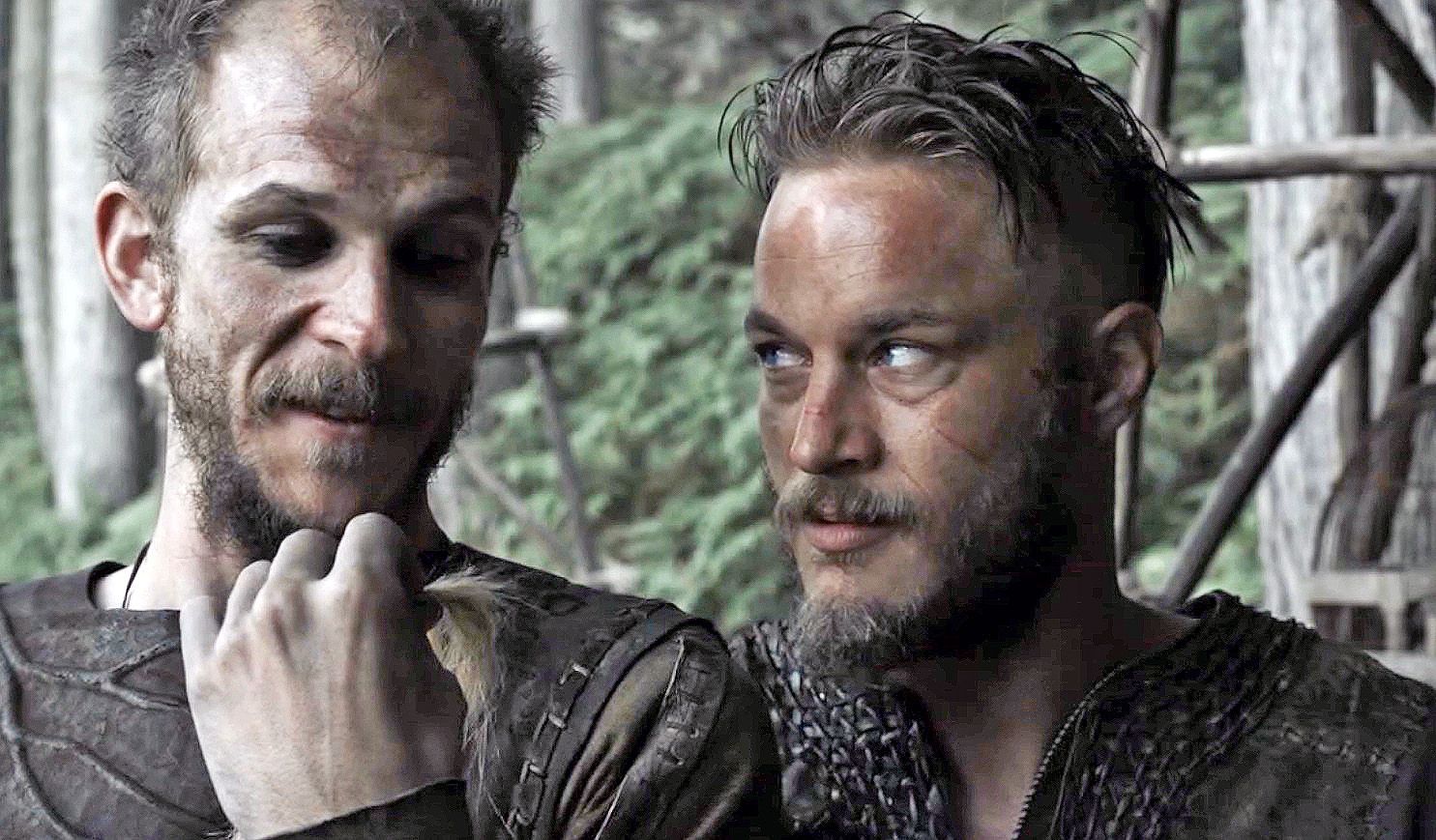
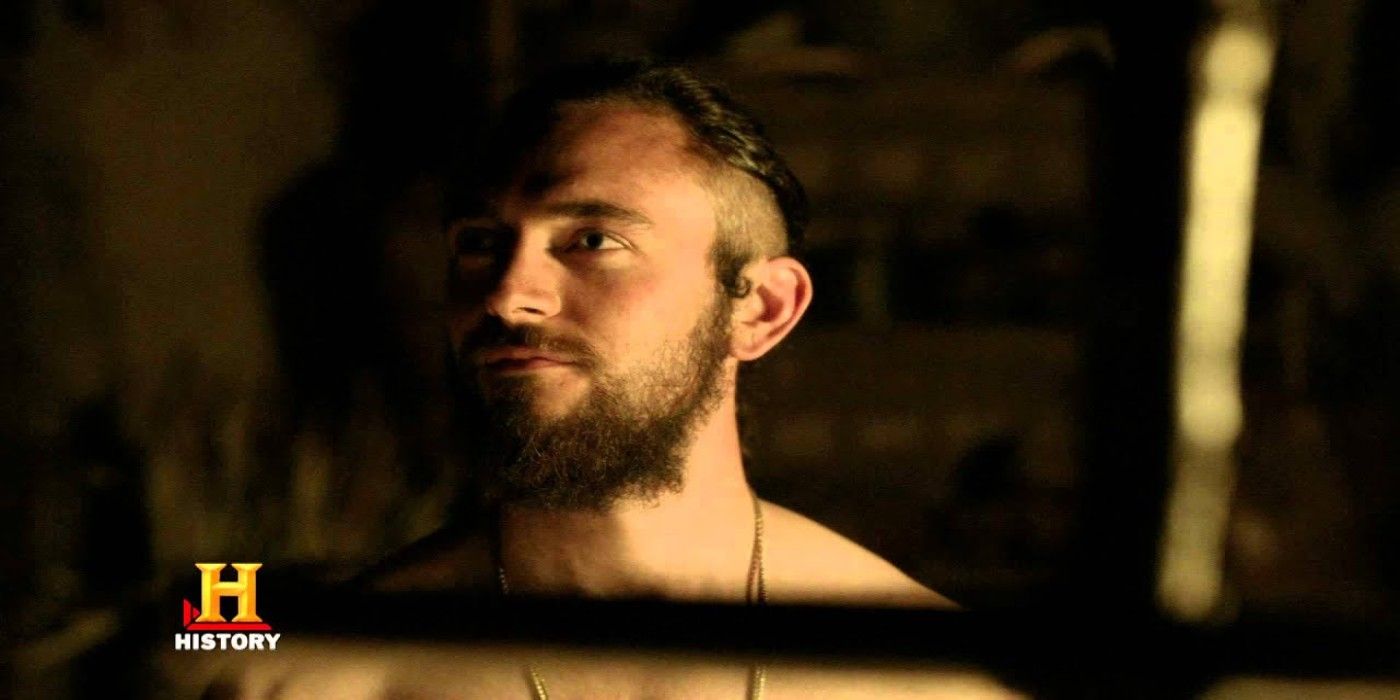
Ragnar’s friend Floki had long distrusted Athelstan, (correctly) believing that he was lying about having given up his Christianity. This dislike was only intensified after Ragnar allowed himself to be baptized. The catalyst within the series for Athelstan’s death was that Floki had a vision of blood coming out of wood and took it as a sign that “blood must be spilt.” In season 3’s episode “Born Again,” Floki (Gustaf Skarsgård) approaches Athelstan while he is praying. Athelstan, understanding that Floki is about to kill him, calmly accepts his death, saying: “Lord, receive my soul” An enraged Floki then hits him in the head with his axe, killing him instantly. It was a heartbreaking moment for Vikings fans for many reasons: Athelstan was a favorite and so was Floki, and viewers had grown fond of the friendship between Ragnar and Athelstan.
This moment represents the two faiths that Ragnar is wavering between – Athelstan has introduced him to Christianity, while Floki represents the Old Gods. His murder of Athelstan is driven by jealousy, but also by a need to keep Ragnar as close to their faith as possible. More interestingly, though, Athelstan’s death does not mean the end of Ragnar’s faith. Instead of returning to the Old Gods fully, he continues to explore his faith in new ways – representing the way that Christianity will pervade the Norse world, over time, despite the efforts of the faithful to eradicate it.
What George Blagden Has Said About Athelstan’s Death
He Knew It Was The Right Time
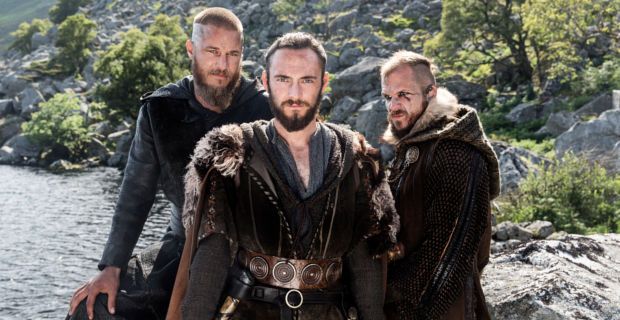
In an interview with EW in 2015, George Blagden opened up about Athelstan’s death, sharing how he was told that his character was going to die. Blagden explained that Michael Hirst (the screenwriter) sent him an email between seasons, forewarning him of what was to come. He explained that the reasoning was simply that the character’s story had come to an end, and that his arc was exactly what it needed to be, without trying to stretch it out any more – despite how much the fans might have loved to see that.
He was very passionate in writing for television about not overextending character arcs. The worst thing you can do for a character is make it try and exist past the point where it needs to. He felt it was the moment, this midpoint in season 3. I totally agreed with everything he said in his lovely email.
Most of the biggest deaths in Vikings have happened under this mentality, which is good as Hirst knows when a character has given their all and, is careful to give them the ends that they deserve. Athelstan’s death was very dramatic, but it did serve a purpose in the story and helped maintain him as a fan favorite by not overextending his stay.
